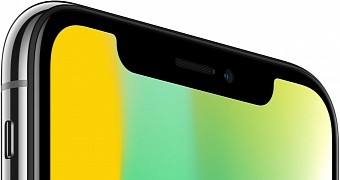The iPhone X marks Apple’s departure from the Touch ID to Face ID, a new face recognition system that uses camera 3D sensing technologies to secure devices.
And while giving up on fingerprint recognition is a major change for iPhone users, it seems that it’s becoming a change that everyone should be getting used to, as Android smartphone manufacturers are very keen on equipping their models with similar technology.
A note sent by top Apple analyst Ming-Chi Kuo to investors indicates that orders for 3D sensing information have tripled since the iPhone X was presented, with many manufacturers also planning to either offer facial recognition alongside a fingerprint sensor or give up on the latter completely.
Kuo says manufacturers are interested in embracing this solution not only for the security features, but also because “it is a key factor in the development of AR.”
“We therefore believe brand vendors are willing to spend more for related components,” the Apple analyst has been quoted as saying.
Facial recognition to become common feature
Qualcomm and Himax, Orbbec, and Mantis Vision are the companies that are currently manufacturing 3D sensing tech for Android manufacturers, with shipments of phones running Google’s operating system and boasting such a technology expected to skyrocket in the next two to three years.
They should exceed those of phones with under-display fingerprint sensors, the analyst says, and this shouldn’t be too difficult because this latter technology is yet to gain ground.
On the other hand, going for facial recognition is a solution that more companies would be interested in because it works with both LCD and OLED panels, whereas fitting a fingerprint sensor under the screen can only be possible with the latter.
The iPhone X is projected to launch on November 3 and it’ll be the only iPhone model featuring facial recognition and no Touch ID. At this point, it’s not yet clear when the first Android devices boasting similar tech are expected to arrive to the market, but 2018 is very likely the target date for most manufacturers.

 14 DAY TRIAL //
14 DAY TRIAL //